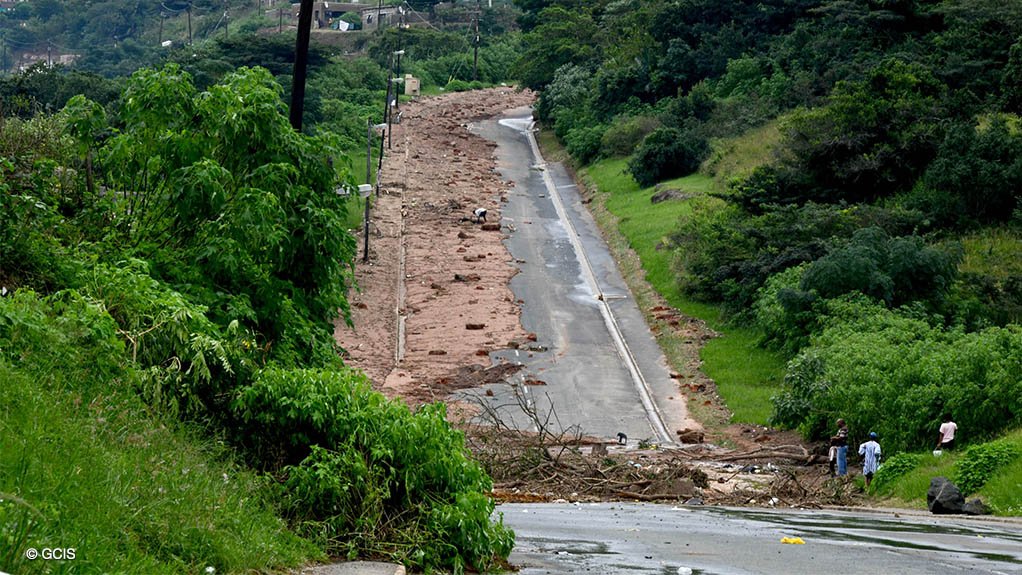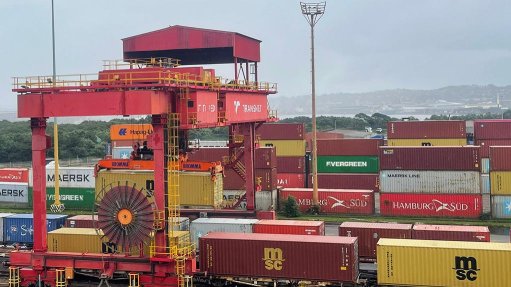South Africa urged to factor climate risk into Monetary Policy
South Africa’s central bank urgently needs to adopt a more flexible monetary-policy framework that incorporates climate-risk considerations, new research shows.
“Traditional monetary policy tools might be insufficient or less effective if climate risks are not integrated into the decision-making process,” authors Admire Chirume, James Hurungo and Brandon Chinoperekweyi, wrote in a study published by the South African Reserve Bank on Thursday.
Scenario tests they conducted over a 50-year horizon showed droughts, floods, changing rainfall patterns, supply disruptions in key sectors such as agriculture, and other shocks translated into steeper production costs — which led to higher interest rates.
The central bank has been set a 3% to 6% inflation target, although policymakers said last month that they intend to aim for the lower end of the band.
Extreme weather events such as severe drought and flooding have become increasingly commonplace in South Africa and led to significant damage, underscoring the urgency for the government to respond.
Besides driving up prices, climate-induced shocks significantly influence inflation expectations, weigh on economic growth and elevate unemployment in a country with one of the highest jobless rates in the world at 33.2%, the study found. It also noted that investment tended to decline during periods of climate stress and exchange-rate volatility was exacerbated.
“The central bank should develop climate-informed interest-rate policies that proactively address expected and unexpected climate shocks,” the authors wrote. “This entails integrating climate forecasts and stress-testing scenarios into policy models, enabling the SARB to better anticipate inflationary or deflationary pressures driven by environmental factors.”
They also called for monetary policy to be accompanied by targeted fiscal and agricultural policies and interventions such as investing in climate-resilient infrastructure and promoting sustainable farming practices to reduce the impact climate shocks have on the economy.
Article Enquiry
Email Article
Save Article
Feedback
To advertise email advertising@creamermedia.co.za or click here
Press Office
Announcements
What's On
Subscribe to improve your user experience...
Option 1 (equivalent of R125 a month):
Receive a weekly copy of Creamer Media's Engineering News & Mining Weekly magazine
(print copy for those in South Africa and e-magazine for those outside of South Africa)
Receive daily email newsletters
Access to full search results
Access archive of magazine back copies
Access to Projects in Progress
Access to ONE Research Report of your choice in PDF format
Option 2 (equivalent of R375 a month):
All benefits from Option 1
PLUS
Access to Creamer Media's Research Channel Africa for ALL Research Reports, in PDF format, on various industrial and mining sectors
including Electricity; Water; Energy Transition; Hydrogen; Roads, Rail and Ports; Coal; Gold; Platinum; Battery Metals; etc.
Already a subscriber?
Forgotten your password?
Receive weekly copy of Creamer Media's Engineering News & Mining Weekly magazine (print copy for those in South Africa and e-magazine for those outside of South Africa)
➕
Recieve daily email newsletters
➕
Access to full search results
➕
Access archive of magazine back copies
➕
Access to Projects in Progress
➕
Access to ONE Research Report of your choice in PDF format
RESEARCH CHANNEL AFRICA
R4500 (equivalent of R375 a month)
SUBSCRIBEAll benefits from Option 1
➕
Access to Creamer Media's Research Channel Africa for ALL Research Reports on various industrial and mining sectors, in PDF format, including on:
Electricity
➕
Water
➕
Energy Transition
➕
Hydrogen
➕
Roads, Rail and Ports
➕
Coal
➕
Gold
➕
Platinum
➕
Battery Metals
➕
etc.
Receive all benefits from Option 1 or Option 2 delivered to numerous people at your company
➕
Multiple User names and Passwords for simultaneous log-ins
➕
Intranet integration access to all in your organisation




















